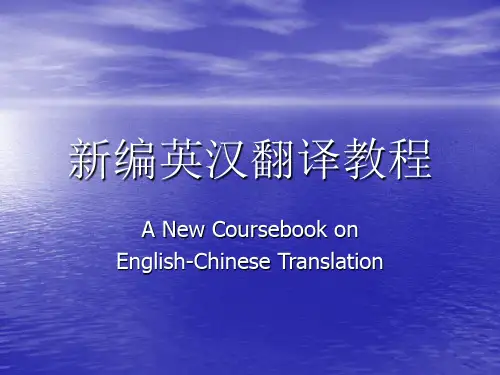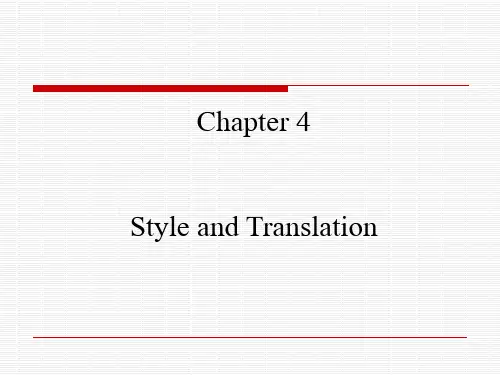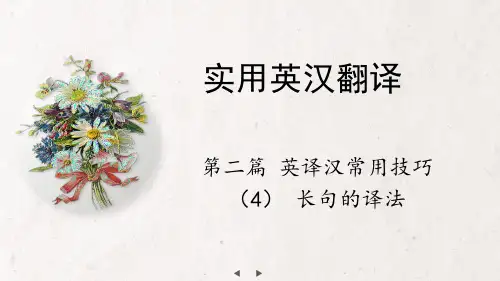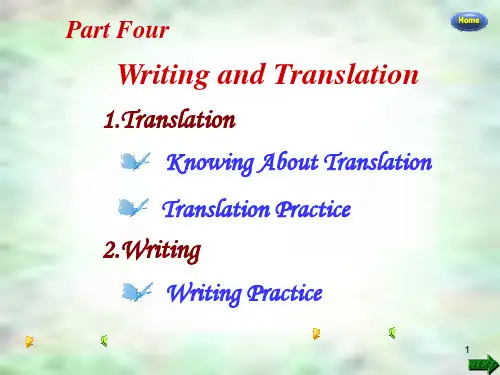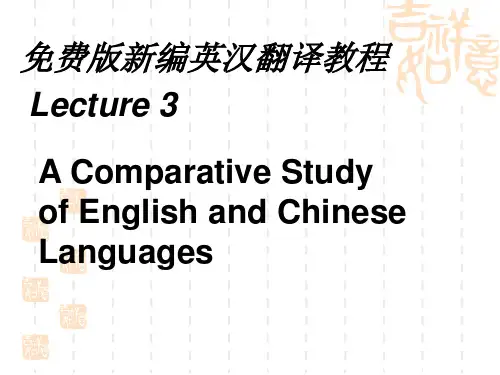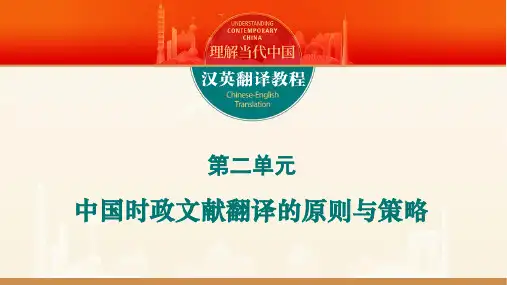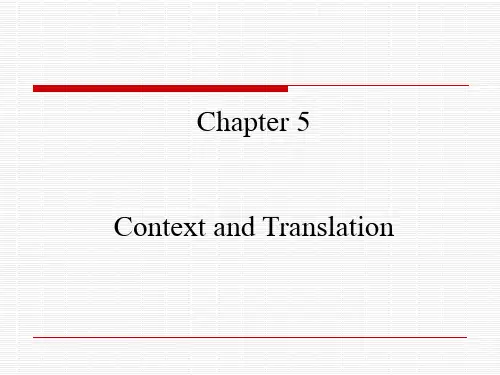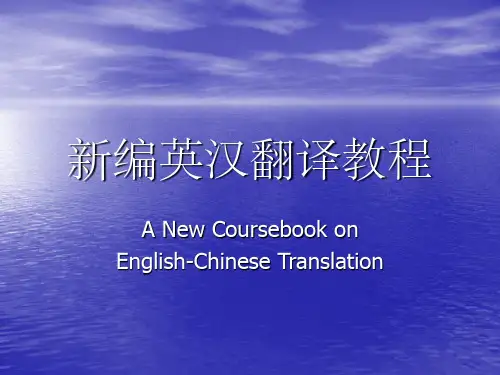“登”一词既有“爬,攀登”之意,又可理解为“登 陆”.从本句的上下文看,登这一动作的施动者是军队,对象 是小岛而非高山,“登上”意为登陆上岸,应译作land on,而 非climb onto.
例如:他是我父亲. He is my father. 这姑娘是漂亮. This girl is really beautiful. 此人是书就读. This man reads every book he can reach. 是可忍,孰不可忍? If this can be tolerated, what can not? 是古非今 praise the past to condemn the present
叠词: 信息功能,表情功能,美感功能.
例如:他对事情的进展情况也还满意.
He is quite satisfied with the way things went. “也”在句中是表示程度的副词,不可做“同样”解,不应译 为also或as well.
3.1.2 蕴涵意义的理解与表达
*蕴涵意义指词语内含的情感与联想意义,是词语 的隐含意义,反映特有的思维方式和社会文化。
*同一词语的蕴涵意义是不同的。
例如:月亮与月球的指称意义相同,但月亮在汉语语言文 化中又被赋予了团圆,爱情,故乡等含义.
moon与月亮指称意义相同,但对英美人士,月亮使 他们联想到反复无常的性格,阴森的气氛,甚至是在月圆之 夜现身的狼人.
*因此,译者应在深谙两种语言和文化的基础上尽 可能忠实地再现原文的蕴涵意义,真正做到达意传 神.
b: 晚霞如同一片赤红的落叶坠到铺着黄尘的地上, 斜阳之下的山冈变成了暗紫,好象是云海中的礁石.
The evening glow there is like a patch of red leaves fallen on the ground covered with golden dust. Under the sloping sunrays the hills became dark brown, as if they were rocks among a sea of clouds. (red—scarlet=vivid red or reddish orange)
